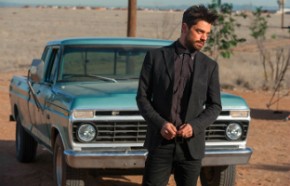Saving Annville

In AMC’s new drama Preacher, Jesse Custer (Dominic Cooper) returns home to pastor his dead father’s congregation in Annville, Texas. The whole town knows he’s a bad boy with a sordid past, and at first he seems lost in his new role. He reads verbatim his father’s old sermons to a handful of parishioners. His throat visibly constricts when he’s forced to offer pastoral advice to a congregant. But everything changes when Jesse is possessed by a mysterious force that grants him the power to make people do what he commands. Suddenly he’s invested in his job.
Preacher is based on a comic book series by Garth Ennis and Steve Dillon that has accumulated a cult following by pushing every boundary of sacrilege and violence. In the first two episodes of the television show, for example, bodies explode, people are set on fire, limbs are amputated by a chainsaw, and body parts are strewn across sun-drenched Texan cornfields. There are also angels, demon-angel hybrids, and hints of a dethroned deity wandering the earth.
The main characters besides Jesse are a drug-addled vampire and a foul-mouthed hit woman who builds bazookas out of coffee cans. There’s enough violence to satisfy a small planet of adolescent boys. But there are also church budget meetings, stolen communion wine, and worries about the megachurch that has a Starbucks in its lobby. These last details make Preacher one of the churchiest shows on television.




